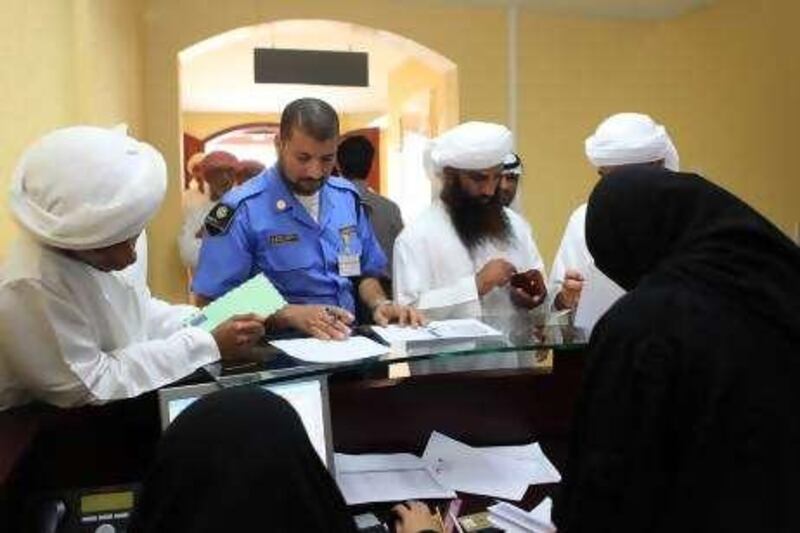ABU DHABI // More than 320 recipients will benefit from this year's Eid zakat donations, three times more than in 2009. A Zakat Fund official said Dh320,000 in zakat al fitr funds would be handed out, and attributed the increase in donations to a more trusting public. "We relate the increase to people's growing trust and awareness of the fund, especially after our summer media campaign," said Mohammed al Bloushi, the director of zakat recipients at the fund.
Zakat al fitr is an amount every Muslim is required to give to the poor before Eid. Mr al Bloushi said zakat al fitr was intended to make up for mistakes during Ramadan. "It cleanses off any gossip that a person accidentally made while fasting," he said. This type of zakat is compulsory for any Muslim who possesses more food than he or his family need for a whole day and night. The amount given by each person should be two kilograms of dates, wheat or barley or its monetary equivalent.
Abdullah al Arabi, the imam of the Dubai Airport mosque, described it as a completion of the fast, which helped Muslims identify with the poor by physically giving to them from one's possessions after fasting ended. "The period during which Muslims can pay zakat al fitr is from the beginning of Ramadan until the Eid prayers are over; the most favourable time is to give it out during the last hours of Ramadan," he said. "The exact value of it differs from one person's capability to the other or from one country to the other, because it should be equivalent to the average of what a person feeds his or her family."
In the UAE, the value is calculated at between Dh20 and Dh25 for each person. Men are required to pay for themselves and their financial dependents, such as wives, children, parents or siblings. Huwaida Saleh was one of more than 100 people awaiting assistance at the offices of the Zakat Fund yesterday. Though many of those present had sad tales to tell, Ms Saleh, a 37-year-old Egyptian divorced mother of three, was upbeat.
"I had applied for help for two years. My situation is difficult as I am divorced with children," Ms Saleh said. "I've been divorced for five years and don't have a source of income except through social affairs, who give me Dh4,490 a month." She said the money would be used to fulfill her children's Eid desires, from clothes to food to presents. It was a sunnah, or tradition, of the Prophet Mohammed to wear new clothes for Eid and visit relatives and friends, so most Muslims buy new clothes for their children to celebrate.
A 25-year-old Emirati recipient of zakat who works at a cement factory in Ras al Khaimah and is married with one child, said he was using the money to pay off accumulating debts. He applied for zakat after seeing an advertisement for the Zakat Fund on television. "These institutions help a human being if he is unable to help himself," he said. hdajani@thenational.ae







